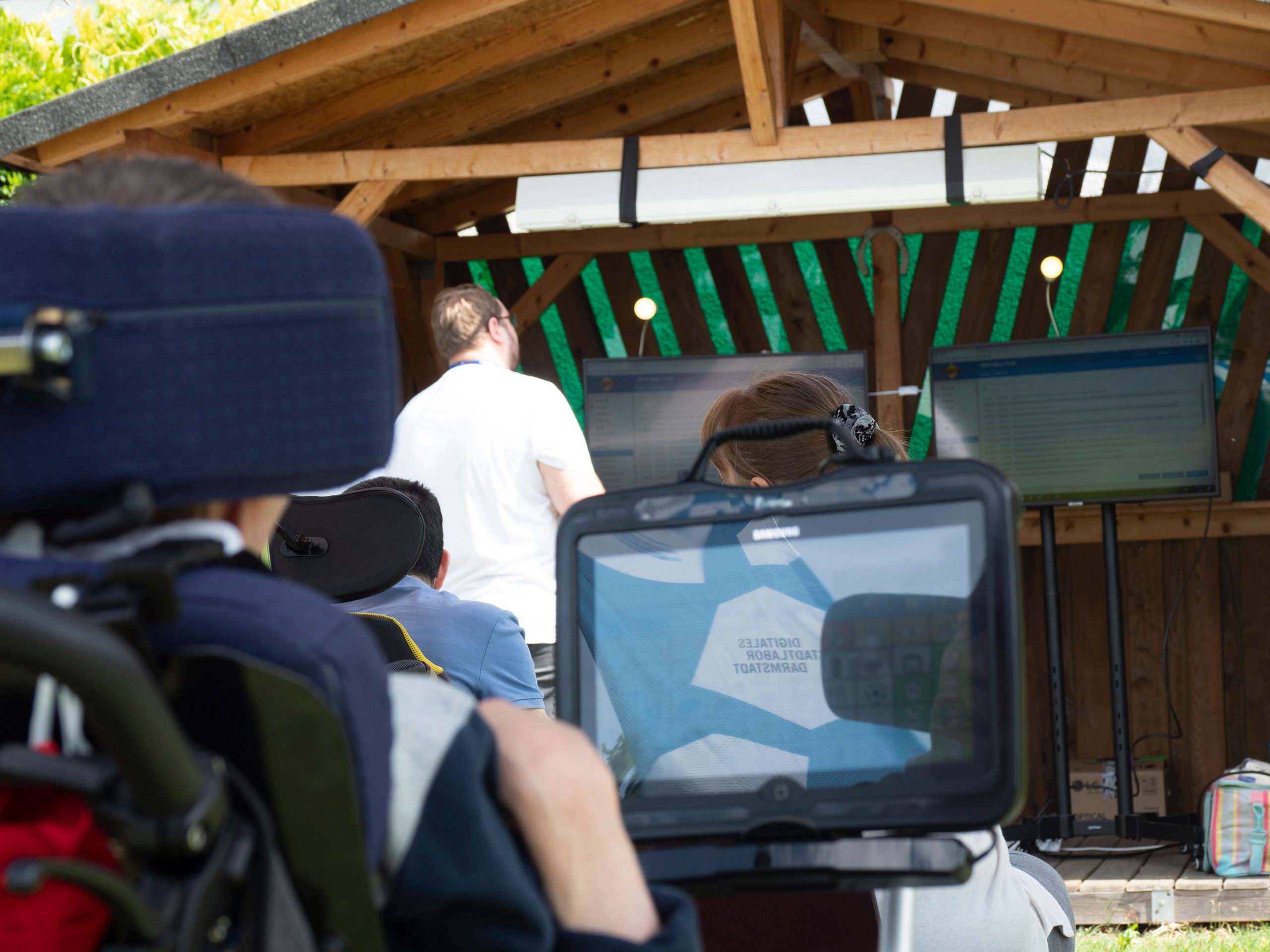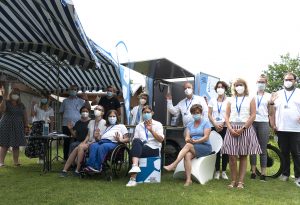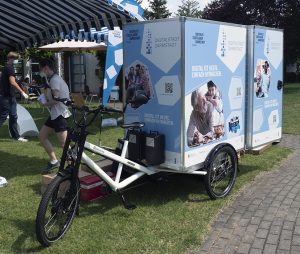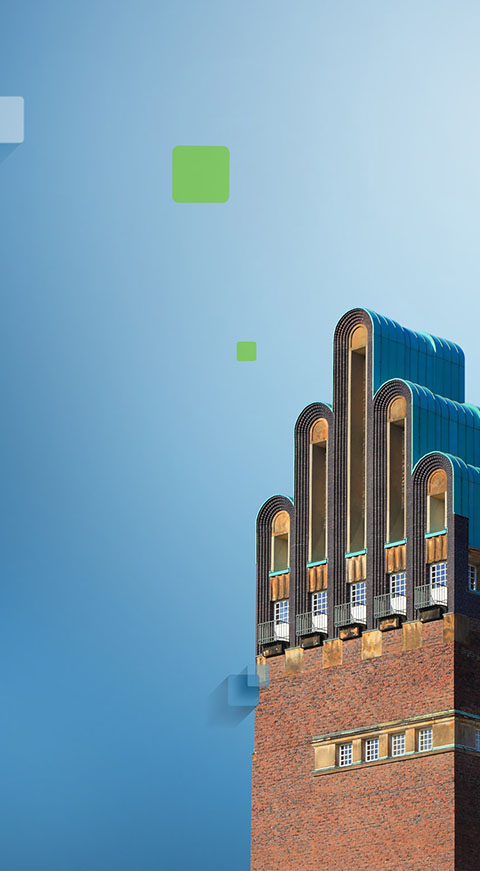
The electric cargo bike, packed with digital technology and information, took its maiden ride in mid-August 2021 in the large grounds of Darmstädter Werkstätten und Wohneinrichtungen (EDW). People with disabilities from Darmstadt and the district have been working there since 1968. Their job consists of a wide variety of orders from industry and local business, including the manufacture of injection-moulded parts, dyeing technology, landscaping and/or gardens, and assembly and packaging work. Ersan Isgoeren (EDW) explained to the Mobile City Laboratory team that EDW employees receive the best possible support and guidance to carry out these many activities – both on an individual basis as well as in terms of training. The team set itself an ambitious goal for its on-site appointment following the strict lockdowns of the coronavirus pandemic: presenting digital assistants to as many EDW students as possible in an understandable way. The reason being that these new AI-based applications of smart homes and digitalised living spaces are proving to be invaluable in the everyday lives of many people – with or without disabilities. Their function is well known, popular and well established, for example, in the navigation of a car.

The Mobile City Laboratory team with the EDW team in their beautiful grounds.
And that’s how Alexa took to the stage at EDW on that sunny afternoon. Antonio Jorba, an active member of the Mobile City Laboratory, introduced the digital voice assistant: ‘Alexa, can you turn the light green or purple for me?’ And of course, Alexa could. Not least because the Mobile City Laboratory technicians had packed a whole host of additional parts, such as LED lights and cabling, into the box of their cargo bike and connected them to Alexa on-site. Upon command, she then changed the colour of the lights, from pink to blue to green and yellow, much to the delight of the audience. And even more than having the option of varying the ambience via voice command, the EDW employees were thrilled that Alexa could make different animal noises. A lion roared, a dog barked, and the audience chuckled, visibly impressed.
Lena Cora, an intern in the IT Lab at COUNT+CARE GmbH & Co. KG, explained that Alexa can also make life easier for people with disabilities. Since she was born, Lena has been dependent on a wheelchair and is therefore often restricted in her range of action and movement. This is also the case in her own home, for example, if she wants to use the window blinds. For many years, this was a real problem until Alexa moved in. Together with Toni Jorba, Lena installed Alexa in her home, and Lena worked hard to understand and put the system into operation on her own. And so today, Lena naturally calls Alexa when she wants to open or close the hard-to-reach blinds. She even gives instructions to friends and acquaintances on how the Alexa installation works. Lena is now very much at home in the digital world.
According to Adelheid Wolf, a member of the Mobile City Laboratory project team and also project coordinator of the eponymous initiative at the Social department of Science City Darmstadt, ‘Digital for all also means that everyone knows what the Internet or a smartphone is and how to use it.’ With this in mind, she created two brochures in plain language with accompanying explanatory videos, which were gratefully received by the EDW team.
The successful launch of the Mobile City Laboratory at EDW is now set for production. Just a few days later, Nancy Teichmann, who coordinated and set up the laboratory premiere, was asked by the workshops to elaborate on digitalisation at EDW together with the laboratory team. In summary: the Mobile City Laboratory had a very successful ride. And if you want to experience digitalisation in a catchy and accessible way, you should look out for the electric cargo bike with the large, light blue charging box in Darmstadt.



